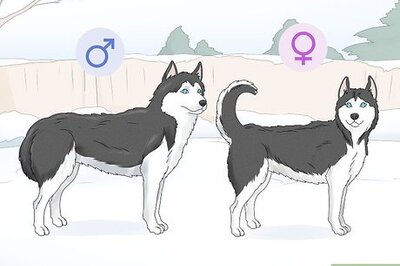
views
To be in the top 10 per cent of the world’s population, you may not need as much money as you think. According to the Credit Suisse Research Institute’s 2018 Global Wealth Report, you don’t even need six figures.
A net worth of $93,170 (Rs 77,98,110) is enough to be richer than 90 per cent of people in the world, reports Credit Suisse. The institute defines net worth, or “wealth,” as “the value of financial assets plus real assets (mainly real estate) owned by households, minus their debts”.
More than 102 million people in the US are in the top 10 per cent globally, according to Credit Suisse, far more than in any other country. To be in the global 50 per cent, you need significantly less: If you have just $4,210 (Rs 3,52,367) you’re still richer than half the world’s population. And you need a net worth of $871,320 (Rs 7,29,27,436) to be in the global 1 per cent. More than 19 million Americans are among them, reports Credit Suisse.
These numbers reflect the extreme extent of persistent wealth inequality. As Credit Suisse puts it, “While the bottom half of adults collectively own less than 1 per cent of total wealth, the richest decile (the top 10 per cent of adults) owns 85 per cent of global wealth, and the top percentile alone accounts for almost half of the total household wealth (47 per cent).”
“There are signs that wealth inequality is no longer increasing,” added Credit Suisse. The share of financial wealth among many of the richest people and richest countries peaked in 2015 and has been declining since then. In previous reports, it predicted that wealth inequality would follow – perhaps with a slight delay – and there are signs that this is now the case.
“The share of the top decile and top 5 per cent remains at the same level as in 2016, while the share of the top 1 per cent has fallen from 47.5 per cent to 47.2 per cent, according to our best estimate,” the report stated.
It is too early to conclude that wealth inequality is on a downward trend, reports Credit Suisse, but “the prevailing signs suggest that it may have levelled off, albeit at very high levels”.




















Comments
0 comment